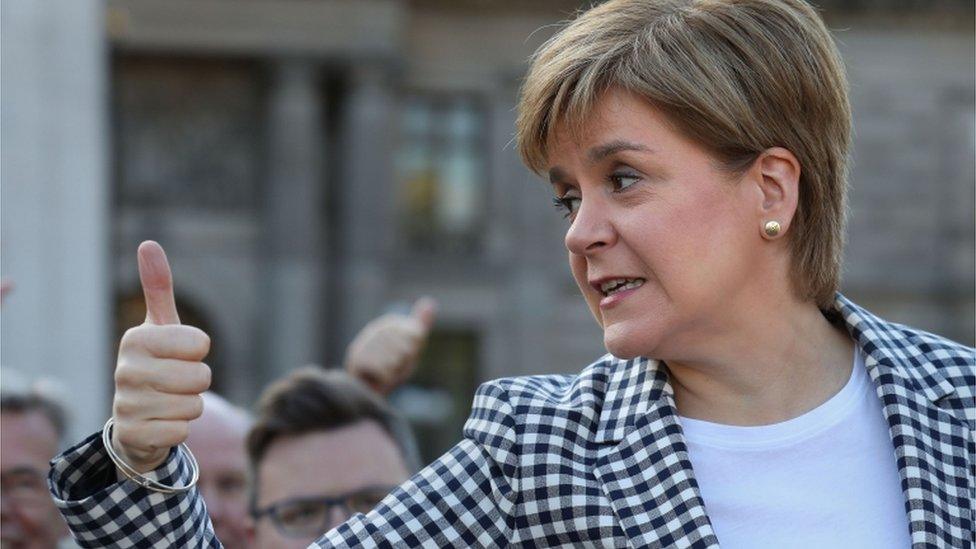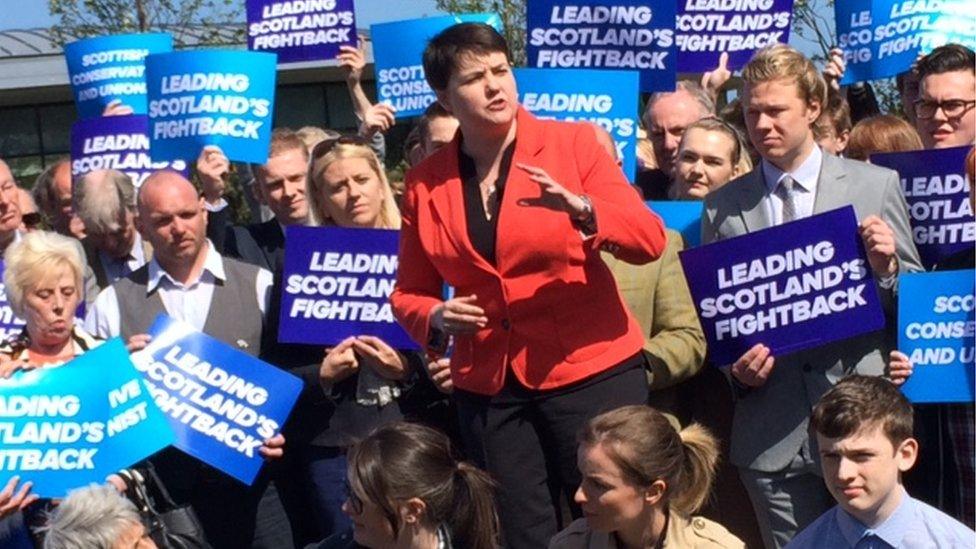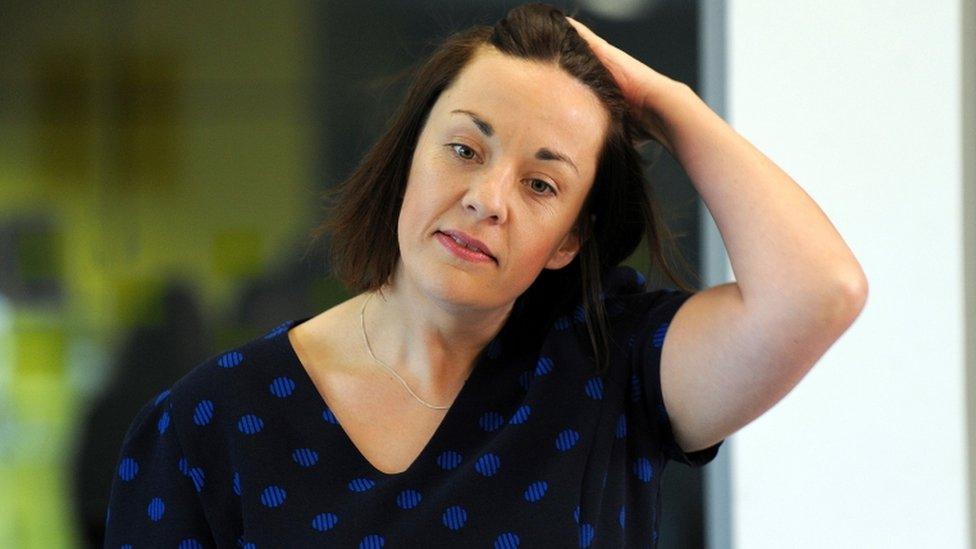What does council vote tell us about general election?
- Published

The SNP finished as comfortably the largest party in last week's council elections
At first glance the SNP scored another remarkable success in last week's local elections. The party won 431 seats, 155 more than their nearest rivals, the Conservatives.
Meanwhile, Labour, who once dominated local government in Scotland were even further behind.
Equally, the official tally of the parties' share of the first preference vote across Scotland as a whole, which was published today by Elections Scotland, confirms that the SNP was well ahead of the rest of the pack.
It won 32.3% of the vote, while the Conservatives secured 25.2% and Labour 20.2%. Both the Liberal Democrats (6.8%) and the Greens (4.1%) were even further behind.
Raise questions
However, the task facing the SNP next month is to defend its remarkable success in winning 56 out of Scotland's 59 seats, a success based not on winning a little less than a third of the vote, as on Thursday, but rather on securing 50%.
So, the fact that the party won only 32% in the local elections would seem to raise questions about the SNP's ability to repeat that feat.
But in truth the two figures, the 32% the party won last week and the 50% it secured two years ago, are not directly comparable with each other.

Ruth Davidson's Conservatives more than doubled their number of council seats
Over one in ten votes on Thursday were cast for independent candidates - in the Highlands and the Islands in particular, council elections are often still genuinely local rather than partisan battles. Independent candidates will not do that well in the general election.
But even if everyone who voted independent on Thursday would have voted SNP in a general election (a highly improbable supposition in itself), that clearly cannot account for all of the difference between the two performances.
The share of the first preference vote is, in fact, exactly the same as it was five years ago, when the last round of local elections was held.
Although it marked the first time that the SNP had managed to outpoll Labour in local elections, the outcome of those elections was, in truth, widely regarded as something as a disappointment for the nationalists.
What was no more than a one-point lead over Labour in the local ballot boxes had seemed like small beer after the SNP's success in winning an overall majority at Holyrood a year earlier.
Still, that disappointment did not stop the SNP winning half the vote in 2015, and so perhaps it will not do so again.
Maybe we are simply discovering that voters in Scotland are just not so keen on voting for the SNP in local elections - much indeed as was the case for Westminster elections until the party's 2015 success.
But, equally, it could be a sign that the party has lost ground. After all, three years - and an independence referendum - elapsed between the 2012 local elections and the 2015 general election.

Scottish Labour lost more than 100 seats - with Kezia Dugdale's party losing its majority in Glasgow for the first time in 40 years
Meanwhile, the SNP have not had any difficulty increasing their vote in local by-elections during the last two years; on average the party's share of the vote has been up ten points on 2012 in such contests.
That would suggest that there was every good reason to think the SNP's share of the vote would also go up last Thursday.
And although the SNP's share of the first preference vote may have held steady across Scotland as a whole as compared with 2012, it has not held up everywhere.
The party's share of the vote has fallen quite heavily in much of the north east in particular. It is down by 13 points in Angus, 11 in Aberdeenshire, nine in Perth, and eight in Moray.
At the same time, it is in the north east where the Conservatives have recorded some of their biggest increases in support; the party's vote was up by 19 points in both Aberdeenshire and Moray, and by 16 points in both Angus and Perth.
Strong challenge
So, even if the SNP's performance in the local elections may not necessarily signal a sharp decline in the party's prospects for June's general election across Scotland as a whole, it does look as though the party's position has weakened significantly in the north east.
As a result, it could well face a particularly strong challenge from the Conservatives in such key seats as Moray, currently held by Angus Robertson, and in Perth and North Perthshire, where the incumbent is Pete Wishart.
Of course, these losses of support in the north east were counterbalanced by gains elsewhere.
The SNP's success in ending Labour's control of Glasgow council was matched by an eight point increase in support across the city.
Elsewhere in the west of Scotland the party's vote also increased especially sharply in West Dunbartonshire (up ten points), and in Inverclyde (up seven).
All in all, there is little in these local election results to suggest that Labour is on course to reverse the losses it suffered at the hands of the SNP in its Clydeside heartland two years ago.
But, in contrast to 2015, it is no longer Labour who the SNP have most reason to worry about.